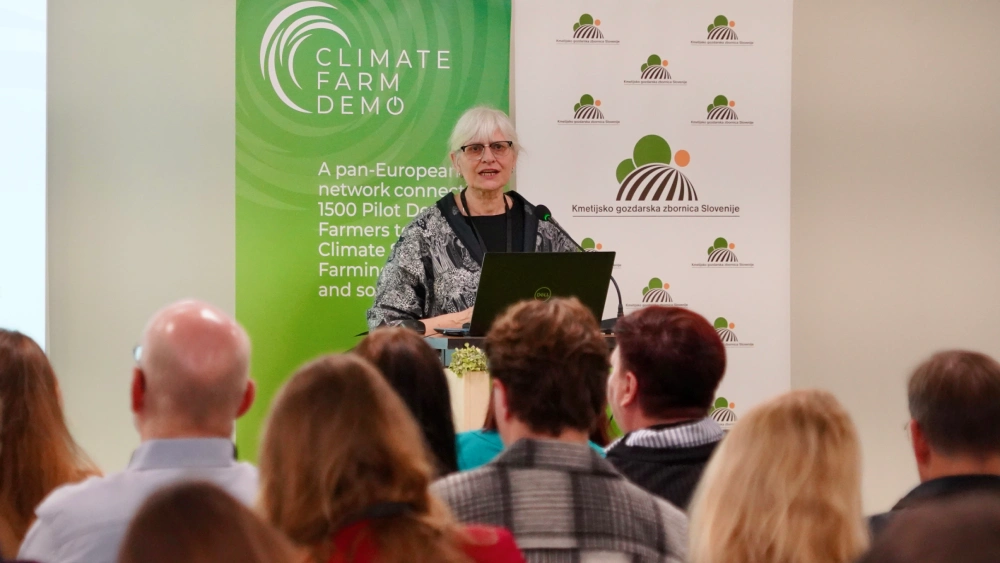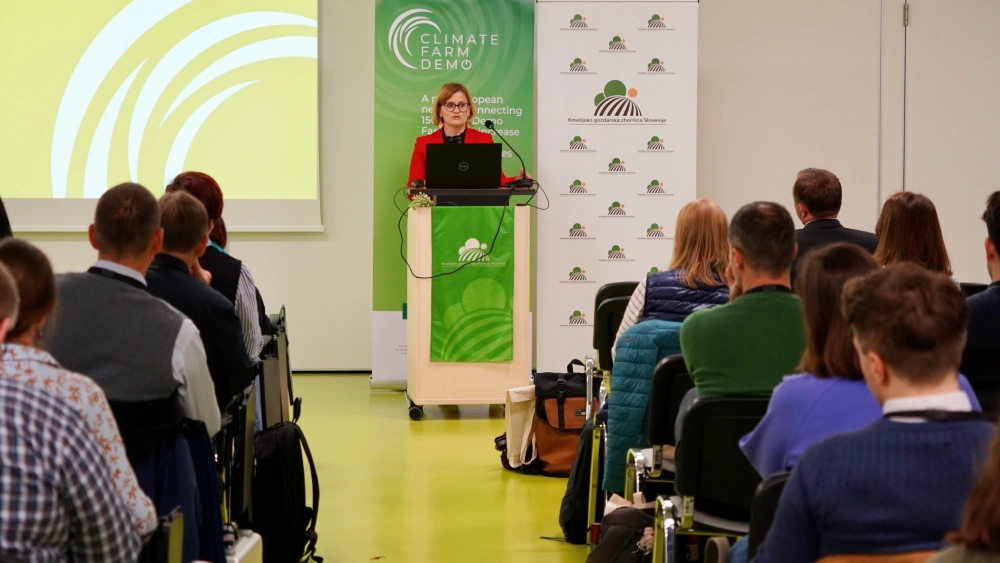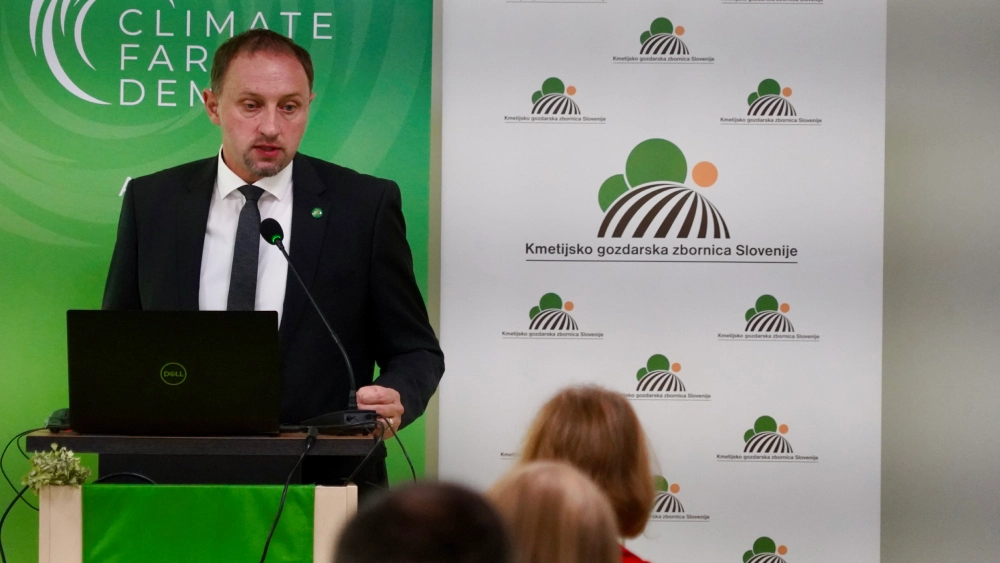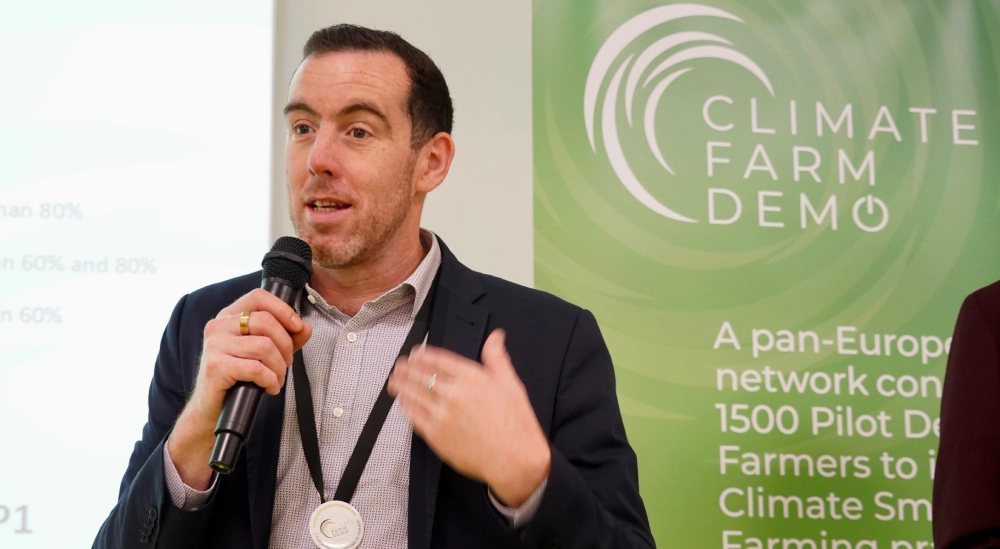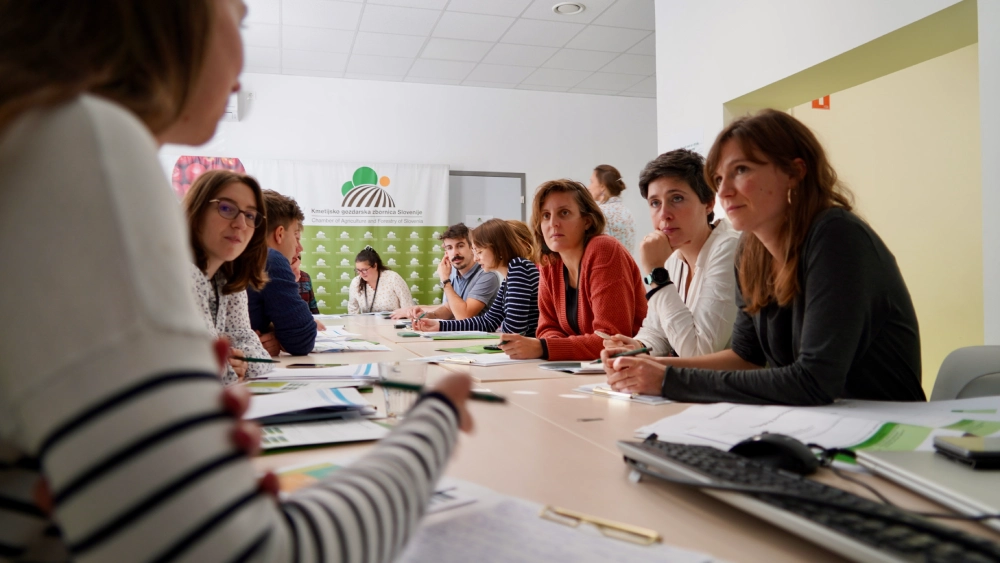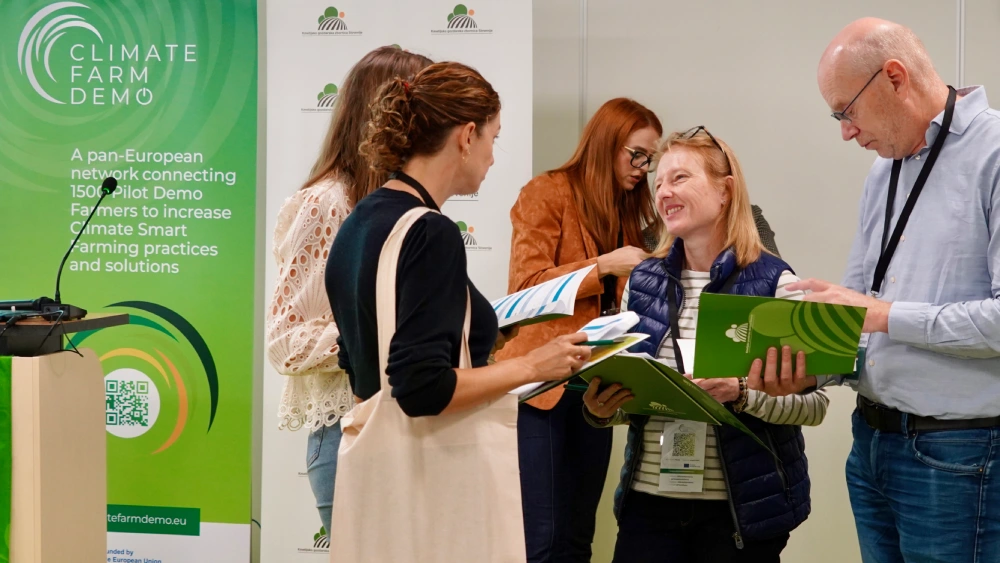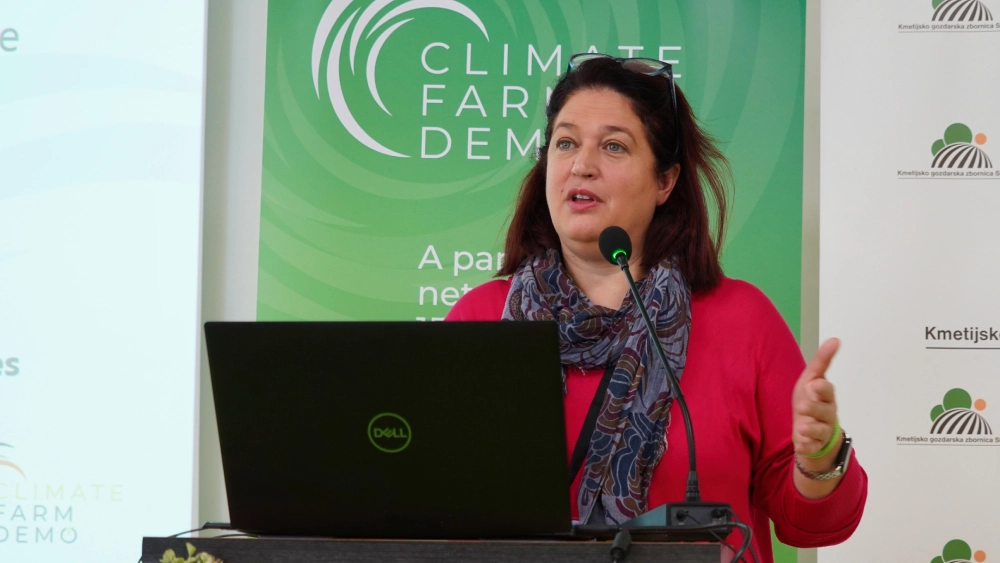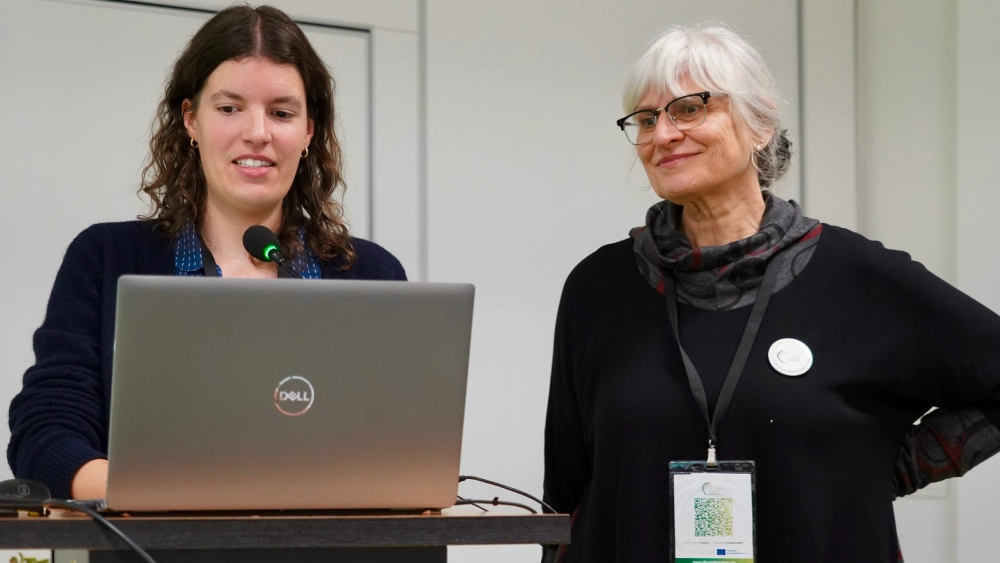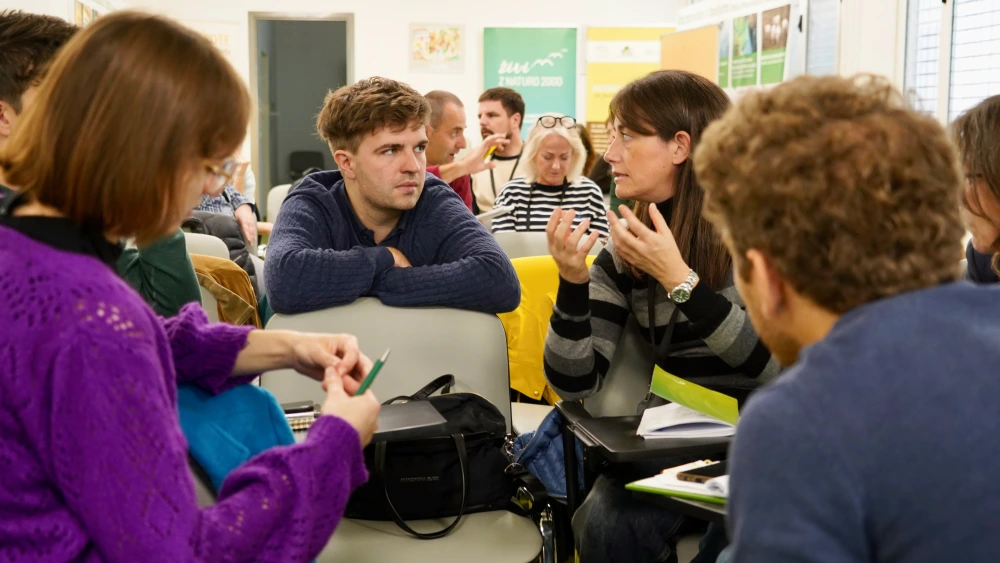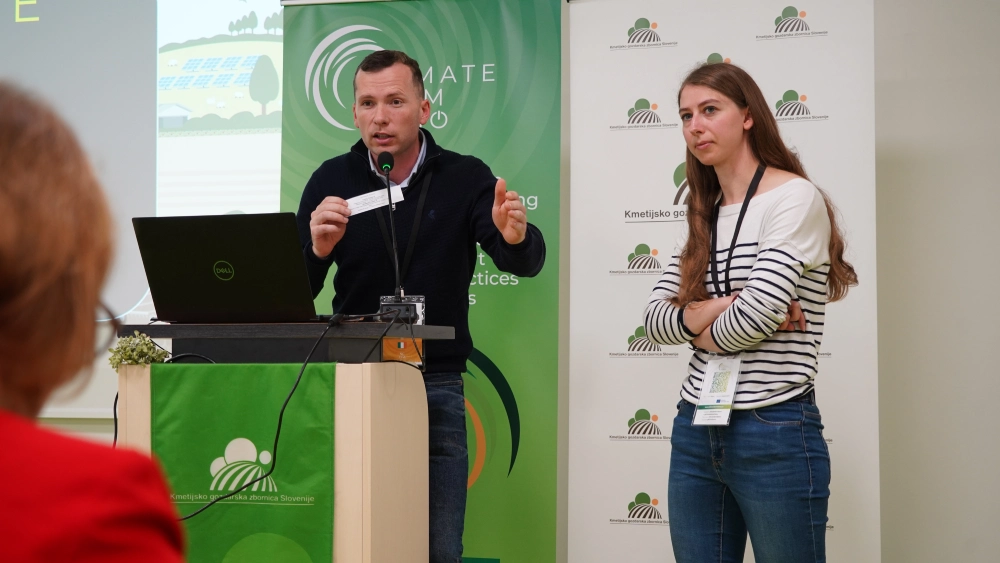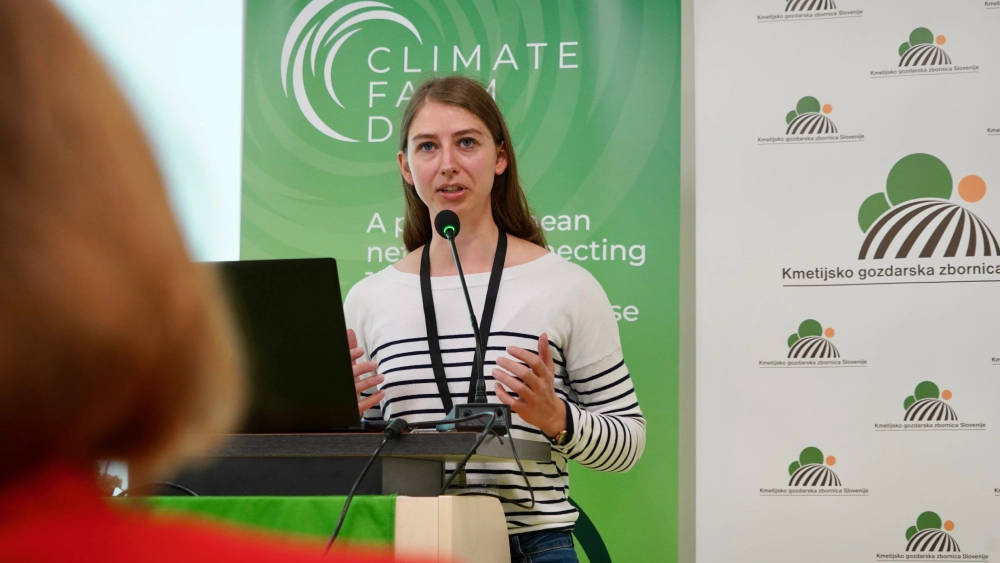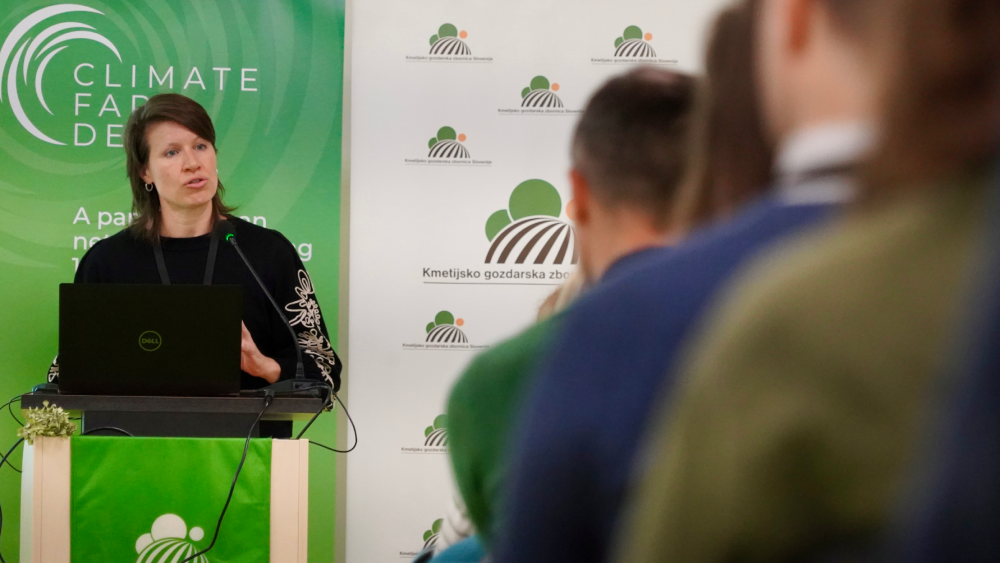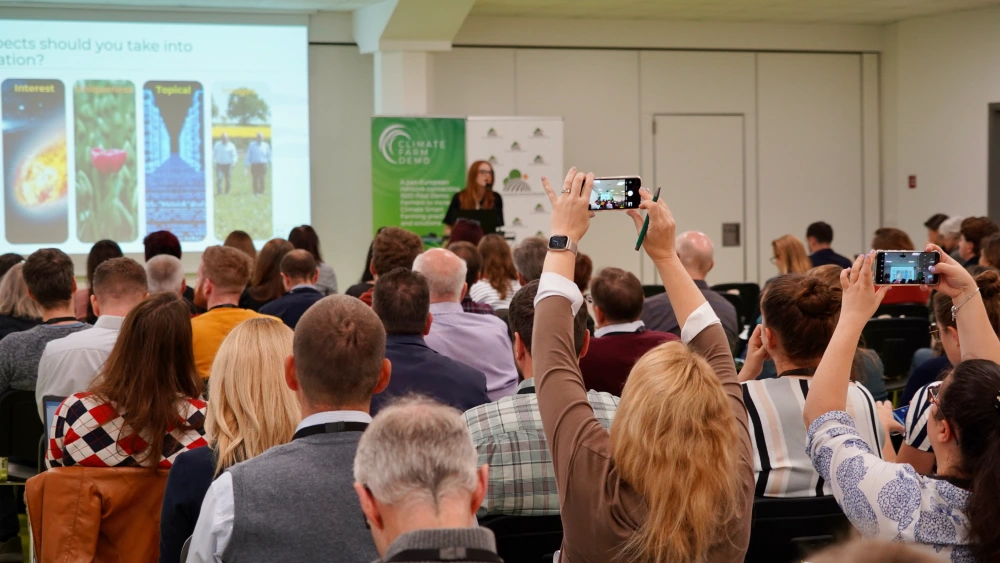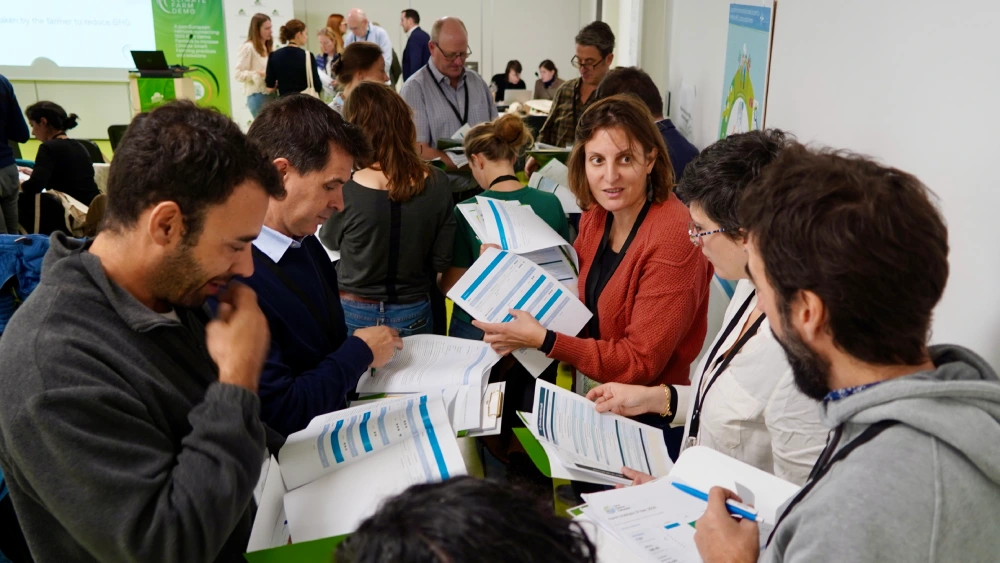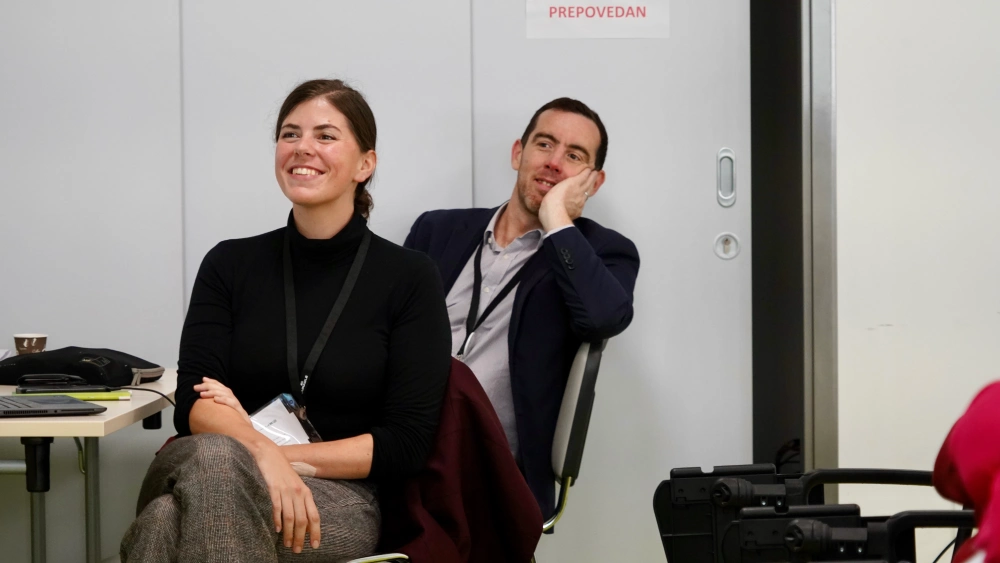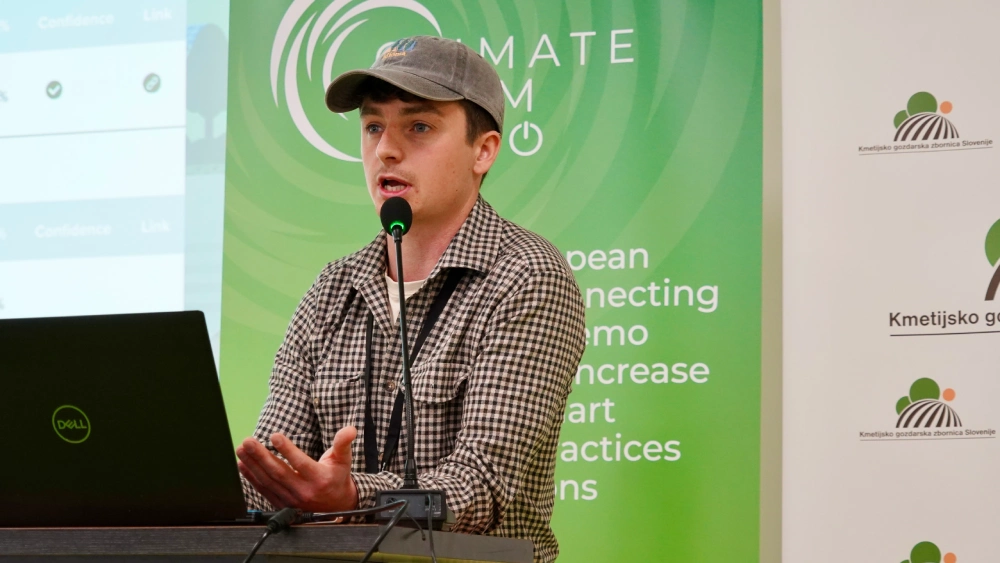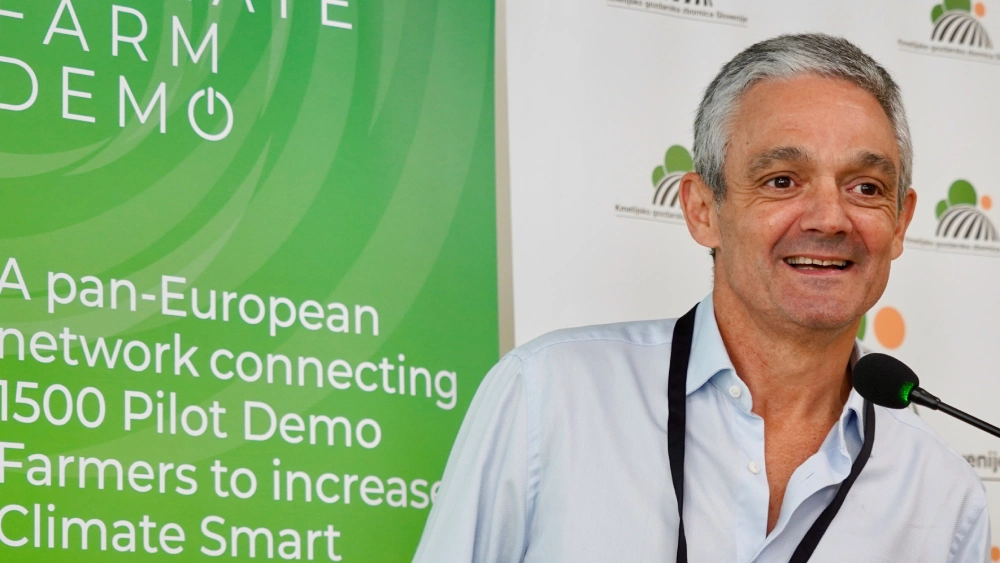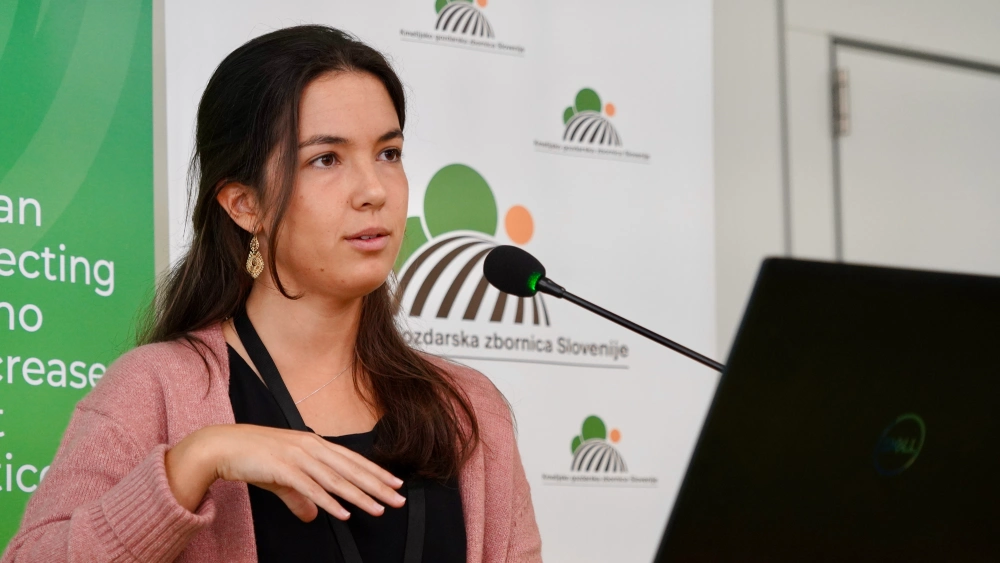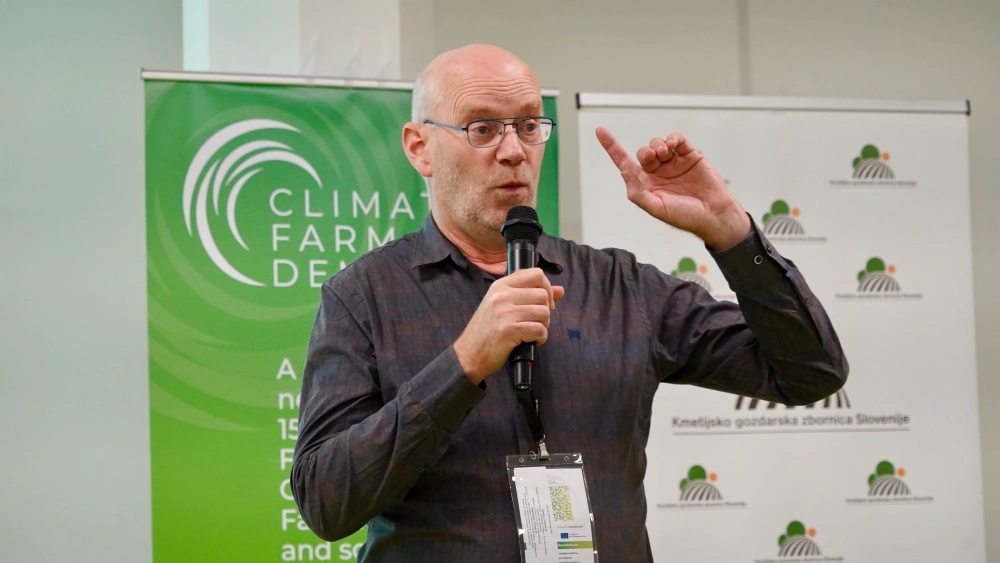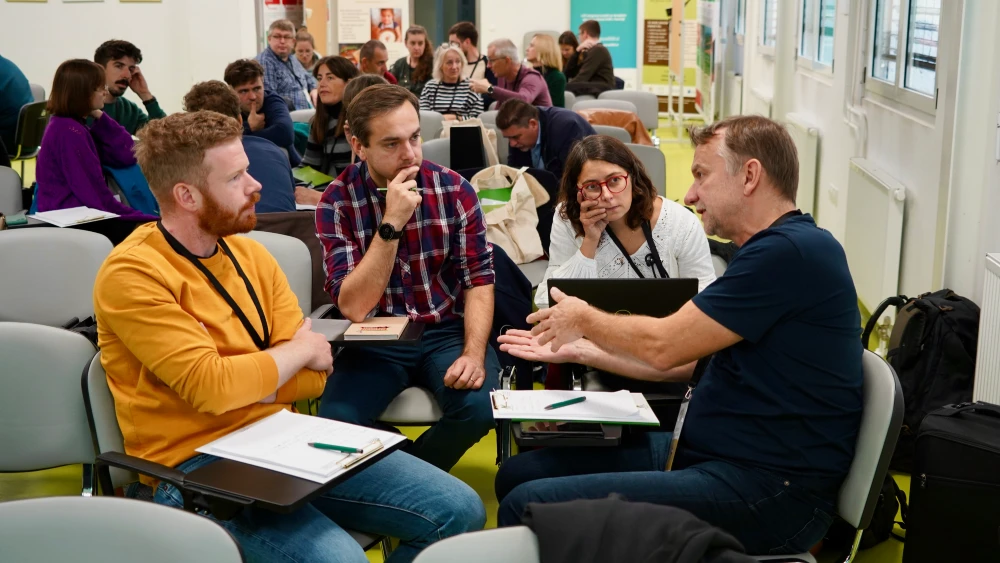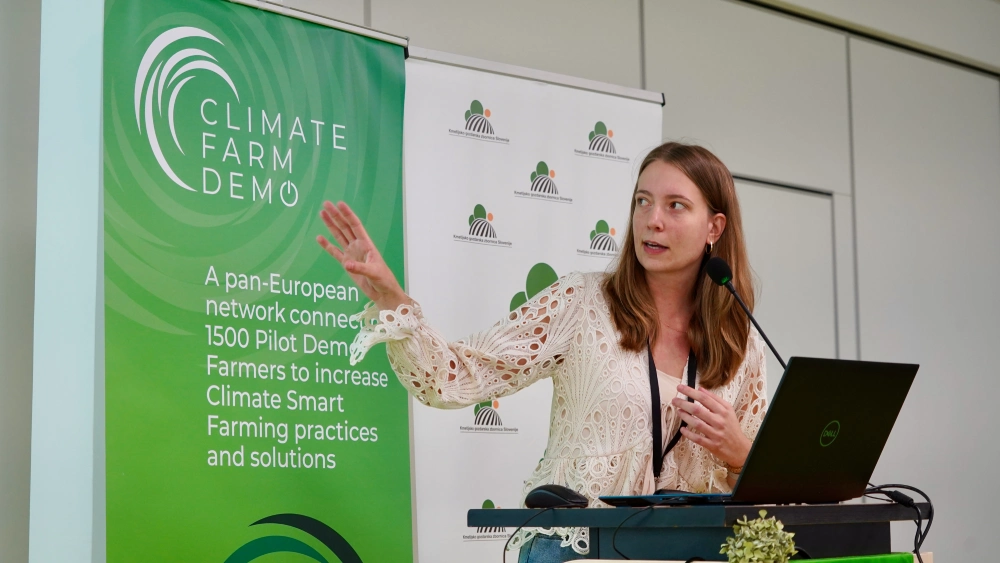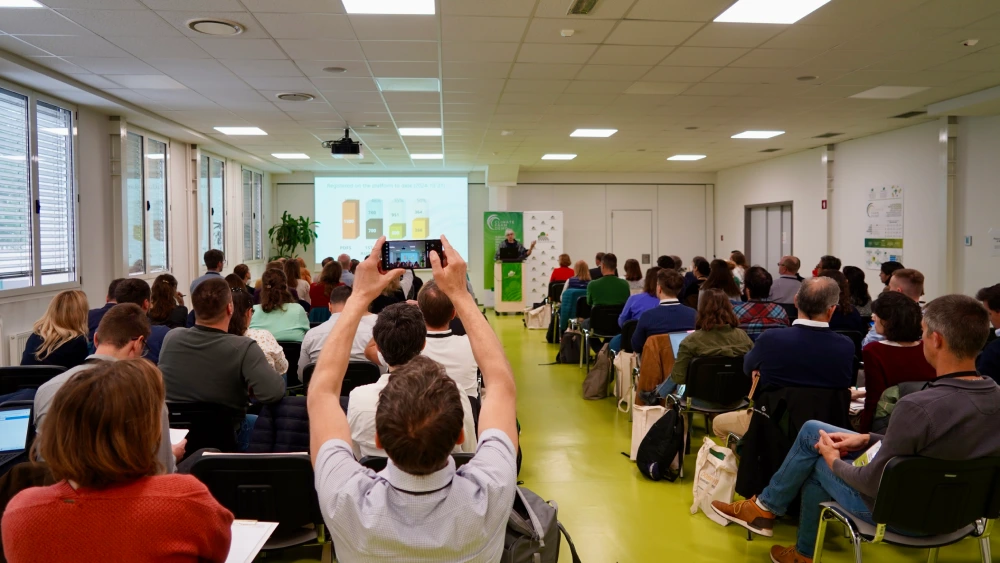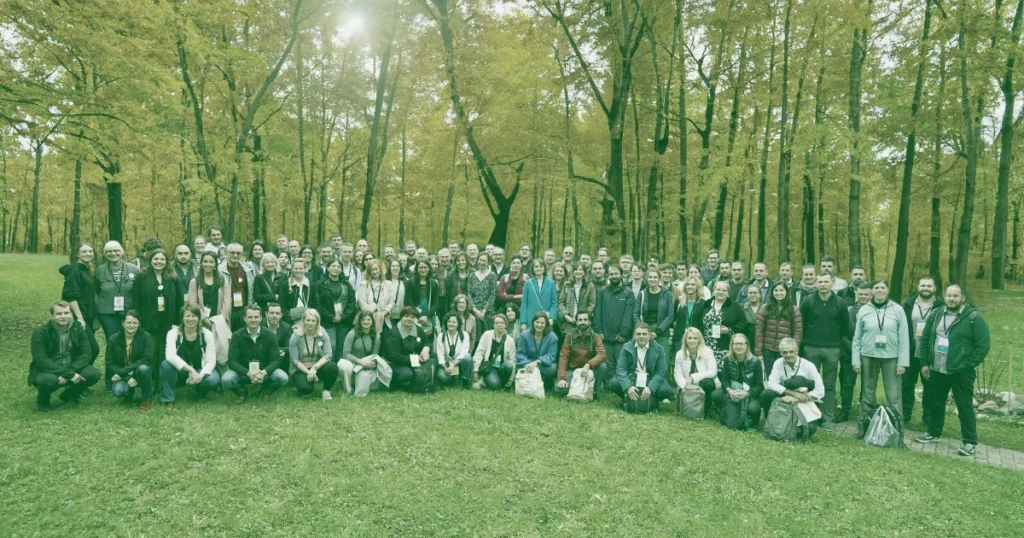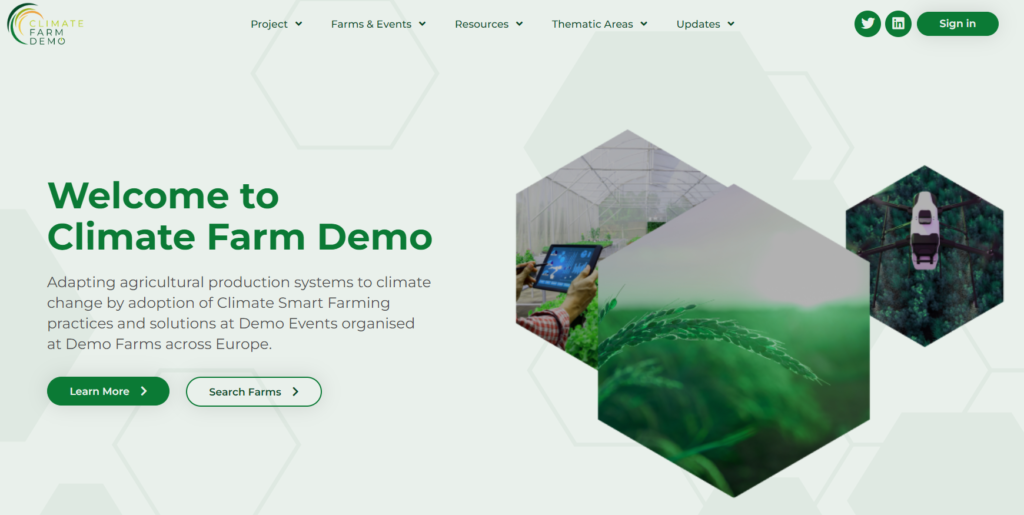From October 22nd to 24th 2024, the Annual Meeting brought together 100 participants, including project partners, Climate Farm Advisors, Thematic Leaders, and Living Lab facilitators, to exchange ideas and advance strategies for sustainable agriculture.
“This meeting exemplifies what collaboration can achieve in the fight against climate change,” said Christine Berger, the project coordinator. “We are working as one community, supporting farmers and creating solutions that are both impactful and inclusive.”
The meeting opened with a warm welcome from Christine Berger-Climate Farm Demo coordinator, followed by inspiring words from Tanja Gorišek of the Ministry of Agriculture, Forestry, and Food (MAFF), and Janez Pirc, Director of Kmetijsko gozdarska zbornica Slovenije (CAFS). Ms. Gorišek emphasized the importance of the multi-actor approach, stating:
“Farmers need to be respected as equal partners, and you, Climate Farm Advisors, are the ones they trust the most. That’s why your participation in this project is so important.”
Additionally, Laure Triste from the Research Institute for Agriculture, Fisheries and Food – ILVO provided an overview of ClimateSmartAdvisors, a sister project of Climate Farm Demo, highlighting achievements such as 27 country reports and the successful launch of Co-Design Innovation Experiments (CoDIEs).
The session on “What Drives GHG Emissions on EU Farms,” facilitated by John Greaney from Teagasc, Anaïs L’Hôte from Institut de l’Elevage – IDELE, and Elena Bortolazzo from Centro Ricerche Produzioni Animali – CRPA, also featured Arran Redman from Innovation for Agriculture, who presented a greenhouse gas (GHG) audit using the Farm Carbon Calculator. This tool, applied to the farms scheduled for later visits, helped participants assess GHG emissions linked to specific farm practices. Arran introduced the structure of the Farm Carbon Calculator and explained key measures, including grazing systems, designed to reduce GHG emissions. Participants analyzed GHG audit reports for two Slovenian farms, using these insights to identify practices that either contribute to or mitigate emissions. Working in groups, they examined how activities such as carbon dioxide, nitrous oxide, and methane emissions vary across different farming systems. This hands-on session provided practical experience in understanding the sources and sinks of GHGs on farms, fostering collaborative learning and identifying actionable strategies to reduce emissions while maintaining productivity.
The day continued with another inspiring session on “Farm Demo Facilitation Approaches,” facilitated by John Greaney from Teagasc, Laure Triste from Research Institute for Agriculture, Fisheries and Food – ILVO, and Emma Knol from Wageningen University & Research – WUR, who guided attendees through methods for organizing impactful farm demonstrations. Participants explored advisory skills, engaging activities, and innovative tools for monitoring and evaluation, ensuring demonstration events are effective and farmer-focused.
The day concluded with two engaging farm demo visits (detailed in a separate article here), followed by an Afterwork gathering upon the participants’ return. This informal event featured a delightful array of food and drinks from various countries, fostering an atmosphere of camaraderie and cross-cultural exchange. Beyond sharing knowledge, the Climate Farm Demo project celebrates cultural diversity, offering a platform to share traditions, customs, and experiences that enrich the collaborative spirit of the initiative.
The second day of the Climate Farm Demo Annual Meeting kicked off with an energizing “General Assembly,” expertly led by Marion [IČ1] Sestier and Adrien Guichaoua from Acta les instituts techniques agricoles. Their leadership provided clarity and focus, guiding participants through key updates and setting the stage for a productive year ahead. The session highlighted the collective progress of the project, while reaffirming the importance of collaboration in achieving impactful solutions for sustainable agriculture.
The day continued with the “Optimizing D&C Impact” session, facilitated by Isidora Čolić from the BioSense Institute, which focused on the importance of communicating complex scientific findings and project results in a clear and accessible manner. The session emphasized the need to tailor messages to specific audiences and plan dissemination strategies accordingly. Participants, including Siw Fasting, shared successful approaches and discussed effective methods for engaging farmers and stakeholders while planning dissemination activities for the upcoming year.
Laure Triste from the Research Institute for Agriculture, Fisheries and Food – ILVO led the session on “Supporting Network Animation – Dealing with Challenges and Meeting the Needs of CFAs and CFDs.” This session addressed challenges in sustaining advisor networks and supporting demo farmers. Group discussions provided practical solutions and actionable ideas for strengthening national networks.
The last session of the day, “Reflection on the First AMPs and How to Support Farmers,” was facilitated by Elena Bortolazzo from Centro Ricerche Produzioni Animali – CRPA and focused on the progress of Adaptation & Mitigation Plans (AMPs). Participants shared strategies for supporting farmers, fostering synergies with other initiatives, and enhancing climate-smart practices.
The day concluded with visits to two Slovenian farms, followed by a delightful social dinner. The evening provided yet another valuable opportunity for participants to network, exchange ideas, and discuss the project face-to-face in a warm and collaborative atmosphere.
The last day of the Annual Meeting kicked off with a session on “AMMs and Rewards – What Are the Needs?” led by Laurène Lebelt from Climate-KIC, who introduced preliminary findings on reward systems tied to sustainable farming. Discussions centered on incentives for adaptation and mitigation measures, sparking innovative ideas for rewarding climate-smart practices. Julia Pazmiño Murillo presented a teaser on the Rewarding Mechanisms state-of-the-art report, igniting a dynamic exchange of ideas. This session encouraged all participants to engage and contribute to shaping a more effective reward system for farmers.
The day continued with two parallel sessions. Facilitators Herman Schoorlemmer from Wageningen University & Research – WUR and Jo Bijtebier from the Research Institute for Agriculture, Fisheries and Food – ILVO, led the first session on “How to Support Climate Smart Agriculture – Lessons Learned from the Living Labs,” exploring early results and challenges from 10 Living Labs. Participants shared recommendations for co-creating innovative solutions in climate-smart agriculture.
The second parallel session, “Thematic Areas: Strengthening Knowledge Exchange at EU-Level,” was organized exclusively for Thematic Leaders, who participated in a focused workshop led by Maria Ingham Mendonça and Luís Mira da Silva from CONSULAI. This session reviewed progress on activities such as online exchanges and cross-visits, while planning a more effective Knowledge Exchange Plan and strategies for regional collaboration. Discussions centered on enhancing coordination with the ClimateSmartAdvisors project, supporting national networks, and increasing consortium engagement in thematic exchanges. This workshop provided an invaluable platform for leaders to refine strategies and shape the future of EU-level knowledge exchange in climate-smart agriculture.
The Annual Meeting concluded with an interactive “World Café” session, where participants developed personalized action plans for the next year. Priorities included: implementing Adaptation & Mitigation Plans (AMPs), organizing effective demonstration events, strengthening synergies with stakeholders, and refining communication and dissemination strategies. Participants had the opportunity to visit any of the four stands and ask questions on a variety of topics, providing a valuable chance to fill knowledge gaps and gain further insights.
In addition to the sessions, extensive knowledge exchange, and networking opportunities, the four Slovenian demo farm visits played a crucial role in the Annual Meeting. Participants gained firsthand insights into climate-smart practices and their tangible impact, with these visits offering a practical complement to the event’s discussions. By experiencing real-world examples, participants were inspired and able to connect theory with practice, as well as exchange knowledge and practices from different countries. Learn more about the farm visits here: Farm Vodnjov, Pr’Črnet Farm, Bohinc Farm, and Cajhen Farm.
The Climate Farm Demo consortium extends heartfelt thanks to Kmetijsko gozdarska zbornica Slovenije (CAFS) for hosting this remarkable Annual Meeting and to all the participants for their dedication and contributions. Your enthusiasm and expertise continue to drive the success of this initiative.
As Christine Berger concluded: “The enthusiasm and commitment we have seen here in Ljubljana gives us hope for the future of sustainable agriculture. Together, we are contributing to a resilient farming community for generations to come.”
